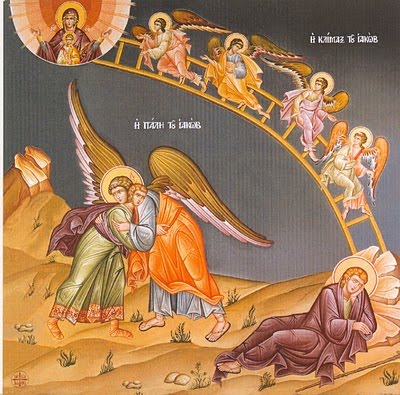Study on the Book of Jonah – Part 1

These are days the Church is preparing to start the Nineveh Lent or the Three-day Lent. The three-day fast of Nineveh commemorates the three days that Prophet Jonah spent inside the fish and the subsequent repentance of the Ninevites through his preaching.
The story of Jonah the prophet and the people of Nineveh are written in the Book of Jonah in the Old Testament. Consisting of only four chapters, this is one of the short books in the Old Testament, yet it offers us some of the most powerful life lessons to live by.
Before proceeding further, pause and take few minutes to read Chapter 1.
You Cannot Out-run God!
In versus 1 to 3, we see God asking Prophet Jonah to go to a place called Nineveh. Nineveh was the capital of the biggest country in that region. But (Jonah) didn’t like what God said. The reason is, the people of Nineveh were known to be wicked and cruel. They were his enemies, those who had attacked, destroyed and even killed many of Jonah’s people. Jonah wanted these cruel people to be destroyed. But he knew that if he went and preached repentance, they might repent and God will forgive them.
So, what does Jonah do? He runs away from God – or at least that’s what he tries to do! God tells him to go to the east (Nineveh) and he goes to the west (Tarshish). What makes Jonah’s actions ironic is that, he’s actually a prophet, who by definition, tells people to ‘turn back’ to God! And here he is, doing exactly the opposite.
And Jonah wasn’t the first one in the Bible to try and out-run God! We have the ‘classic example of a ‘runner’ in Jacob, the son of Isaac. When Jacob got into trouble with his elder brother Esau, he does what he thinks is the best solution – he runs away. Then he goes to another land and slowly builds up his family. There again he gets into trouble with his father-in-law. And what does he do?Yes, of course, he runs away; this time back to where he had run away from. Along the way, he comes to the banks of a river, ‘Yabok’. That night he hears the dreaded news – his brother is waiting for him on the other side of the river! So, he takes everything he owns, and sends them ahead. And what does he do? You guessed it – he runs away! Only problem is, this time, God gets in the way and (an angel) prevents him from running away. And you know what God does? He touches the side of Jacob’s hip and dislocates his joint. Yes, you understood it right. God has just made it impossible for Jacob to run away anymore! And you read in the Bible, that from then on he walks with a limp.
In other words, God was saying to Jacob (and to us) – you can run from your problems, sometimes; but not all the time. Someday we will have to face your problems.

The Ultimate Way to Run Away from God!
Back to the story. Jonah is on a ship sailing across the oceans, going in the opposite direction to where God wanted him to go. But the ship gets into a terrible storm! Unknown to them, that storm was ‘sent’ by God (chapter 1 verse 4)
Everyone on the ship were scared to death and started crying out to their own gods. Usually, sailors of those days were known as the meanest, toughest and roughest people around. And if they were calling on their gods, it certainly tells us a lot about how bad the storm would have been!

Everyone somehow wanted to get rid of this storm! Almost everyone. Jonah, our ‘runner’ was fast asleep in the ship! Yes, he was snoring away in the middle of the worst storm! Maybe he was so tired of running away from God?!
The sailor’s figure that something is not right with Jonah – otherwise, how could any normal, sane human being, snore away when they are about to drown and die?! So I imagine they must have surrounded him and fired a volley of questions at him – ‘who are you? Where are you from? What are you doing here (sleeping)? Why are you not calling out to your god? Have you done something to anger your god? Are you the problem here?’
I guess in the middle of all the commotion, somehow everyone (including Jonah) figures out that Jonah is the reason for the storm. The sailors, half scared, half angry ask him, what shall we do to you? You have brought trouble for everyone. And Jonah gives a brilliant answer – throw me into the water. And if you’re wondering why Jonah is he saying that, it’s because he figured death would be the ultimate way he can out-run God! Right?
Wrong! Jonah forgot about the Psalm (which he as a faithful Jew would have recited plenty of times) which says: “Where can I go from your Spirit? Where can I flee from your presence? If I go up to the heavens, you are there; if I make my bed in the depths, you are there… If I say, “Surely the darkness will hide me and the light become night around me,” even the darkness will not be dark to you; the night will shine like the day, for darkness is as light to you.”
In other words, the Psalmist is saying – you can try and run away from God to anywhere in the world; you can even go to the under-world! But you are still visible to God. Jonah learns this in the most bizzare way; but let’s leave that for another time. Let’s first learn our lessons from this one.
Lessons Learnt
1. #iamtheproblem
The first lesson we have to remember is this: with some problems, we are the problem! Oh yes, we might point our fingers at somebody else as the cause of the problem; but really, ‘we’ are the problem.

Let me illustrate this. Take your hands and point your fingers at someone next to you and say – ‘you are the problem!’ Watch carefully. Whenever you point one finger at somebody else, there are three fingers pointing back at you! In other words, it’s a good way to remind us that, whenever we are eager to point at someone else as the source of the problem, look at ourselves to see, if we are the problem (and not someone else!). Now that is something which is a easier said that done! It’s much much more easier to point one finger at someone else, rather than see the three fingers pointed back at us!
Once a couple went to a counsellor for counselling. When the counsellor asked ‘what is the problem in your relationship?’, the wife said pointing to the husband, ‘He comes home late every day. His office finishes at 5 o’clock, but he comes home only by 9o’clock’. After hearing all these complaints for a while, the counsellor said, ‘Can I talk to your husband alone?’ So, the wife goes out, and the counsellor asked the husband – ‘What time does the office finish? 4:30 sir. But what time do you get home? He said, ‘Usually 9 – 9:30 sir’. Why, why are you going home so late? So, the man looks around and quietly says, ‘she is the problem. The moment I come home, she starts to shout and scream at me. Sir, at office, at least I have some peace. But once I reach home, I lose my peace of mind!”
Now you and I might laugh at the story. But this story simply illustrates what I said before. The wife sees that the husband is the problem. But in reality, she is the problem. (I’m sure there are situations where the opposite is also true!)
Remember the three fingers pointing back at you.
2. #teachingstorm
Some problems (storms) come to test us, but some others come to teach!
Now, you might ask, how can I discern between a problem allowed by God to teach me something from a problem God has allowed to test my faith in Him? For example, when Jesus and His disciples were crossing the Sea of Galilee, there was a storm. But that storm was primarily to test the faith of the disciples.
Here are some ways to find out if these problems are a test of faith or to teach us a lesson.
Number one: #conflictresolution
Ask yourself – is this the consequence of my unresolved conflict with God? Example is David. King David clearly disobeyed God. But he brushed it aside, till his child became sick. Then God had to send his Prophet Nathan to confront him and say – ‘David, you are the problem!’ That sounds familiar doesn’t it!
But here is the point: if you have disobeyed God, this storm or problem may be the consequence of your disobedience. What do you then do? Ask forgiveness to God, reconcile with those whom you hurt, accept the consequence and go on with life. That’s what David did. He accepted the fact that he did the mistake and he asked God’s forgiveness (read Psalm 51). And after receiving assurance of God’s forgiveness, he stood up, cleaned his face and got ready to go forward in life.
Number two. #incompleteobedience
Think back – is there anything you need to completely obey? In other words, have you left something half done or incomplete?

There is an example from the book of Genesis – of Hagar. One day Hagar is mistreated by her mistress Sarah (Genesis 16). So, you know what she does? Just as what Jonah does, she runs away. But after she runs away to the desert with her child, an angel of the Lord appears and asks Hagar, ‘what are you doing here?’ She says, I’m running away from my mistress (Sarah). And do you know what does the angel says? Go back! Oh, but my mistress is going to mistreat me. It is going to be terrible. The suffering there is going be great. But the angel says – go back. Many years later, at the right time, with the blessings of Abraham, Hagar leaves the house; but this time God blesses her and her son.
So, ask yourself, is there anything you need to complete or finish or totally obey, before you can move on. Has God asked you to forgive someone and you have not forgiven? Has God asked you to obey someone and you have not obeyed? Have you taken something which does not belong to you and you’re keeping that with you even though God has told you to get rid of that? Correct it. Obey fully.
Number three. #becomeanexample
Sometimes we go through difficulties and problems because through our lives, God wants to teach others. Example is Job – one man who suffered the most. But because of his suffering, we have actually been encouraged and learnt many lessons. His life is an example for us. Sometimes, the problems we go through are examples for others around us, because they will look at our lives and learn how to live the faith which we have.
Conclusion
A lot of people look at the book of Jonah and say, it’s a very nice story of a (disobedient) prophet, who ran away from God. But the point of the story is that there is a Jonah in every one of us – a person who wants to run away from problems, a person who thinks he can outrun God; someone who thinks that we can close our eyes and imagine that God doesn’t see anything; a person who thinks problems are caused by the others and not by himself. Dear brothers and sisters, continue to reflect on what we have learned from the life of Jonah, let us ask the Holy Spirit to guide us to search our hearts deep within and grant us grace to get right with God.
May God allow us to see the Jonah inside us. Amen.
To read the second part of the Book of Jonah, click here.
To read the third part of the Book of Jonah, click here.
